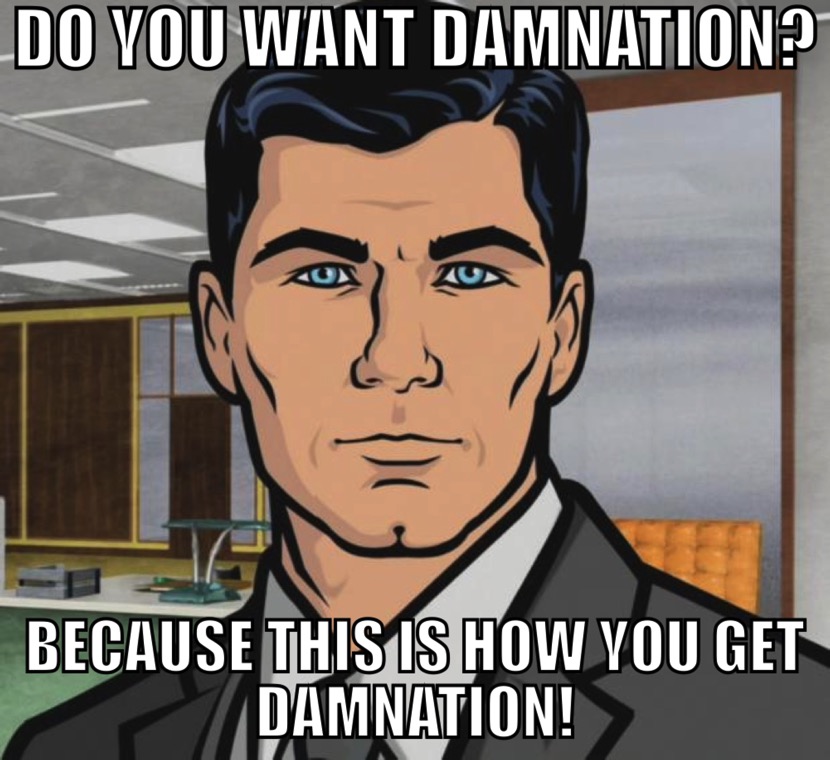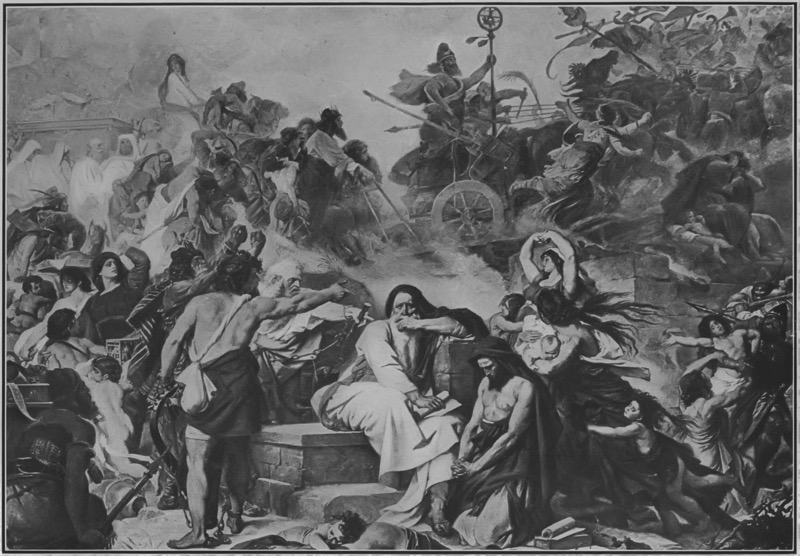In 2016, the choices for president are so bad that many Catholics are struggling over how to vote in a way compatible with our faith. I’ve seen many abandoning their traditional party loyalties who never would have thought it possible before. Some even go so far as to consider voting for a candidate they would have firmly opposed four years ago. Now the Church does not tell us which candidate we must vote for, and neither will I. But Church teaching does oblige us to do what is right even at the cost of our personal preferences. The fact that this obligation may block us from voting for a candidate or party we normally favor does not mean the Church teaching is politically biased. Her teaching is true in the 1st century and the 21st.
This year, the major parties nominated two candidates for President who would ordinarily be unfit for our consideration. Both advocate positions incompatible with the Catholic faith to the point that one could only justify a vote for one of them by intending to block what they see as a greater evil. Some Catholics respond to this problem by looking to the minor parties so they won’t have to vote for a candidate who will support evil—their consciences forbidding a vote for either Trump or Clinton. However, barring some sort of fluke, one of them will be elected President. So even this option requires us to investigate if one of the two will do less evil than the other before choosing “none of the above."
As Catholics, we must use Church teaching to guide our vote. The Kingdom of God is not a political kingdom, but our votes enable people who receive authority and use it to do good or evil. So we have an obligation to vote in a way that promotes the good and limits evil to the best of our knowledge and ability. We look to the Church for guidance, even when doing the right thing means suffering or putting aside personal preferences.
The Church has been clear that the right to life is the fundamental right from which all other rights come. She calls abortion and euthanasia “unspeakable crimes” (Gaudium et spes #51) and says that working for social justice without this defense of life is “false and illusory” (Christifideles Laici #38). Voting for a candidate because he or she supports abortion is gravely sinful. Voting for such a candidate for other reasons is remote cooperation—an evil not directly willed but the action makes the evil possible nevertheless—and can only be justified by a “proportionate reason” (Ratzinger Memorandum). That’s a term which is widely misunderstood. It means we have to answer the question, “What evil are we striving to block which is so bad that it makes abortion seem like a lesser evil?”
This is an objective question, not a morally relativistic one. We can’t say that issues A+B+C (issues we favor) outweigh abortion. We have to be able to point to a real evil, not a speculation on “what might happen” and be able to honestly tell God at the final judgment, “I sincerely believed this evil was so serious that opposing it took priority over defending the right to life in being faithful to You.” God will not be deceived, so we had better be convicted in conscience as formed by the Church and not feign moral conviction if it is a political preference. Vincible ignorance—not knowing but being at fault for not even bothering to learn what is right—is not a valid defense before God.
Here’s the thing to keep in mind. The Church is not speaking out against an evil worse than abortion where we have to pull together to stop it first. Historically speaking, a Third Reich or a Stalinist regime would qualify here, but we do not have such threats present here outside the tired epithets of “communist” and “fascist” hurled around at every election. The Pope and bishops consistently speak against abortion and other attacks on the right to life as the worst evils of our time. This doesn’t mean that other issues are not important. We will have to oppose all evil policies our next president tries to implement. What it means is we can’t downplay or ignore the defense of life in favor of these other issues.
That makes 2016 hard. Of the candidates running in the two major and two largest minor parties, three openly support abortion as a “right” and one claims to oppose abortion but whose moral behavior leads some to reasonably doubt his sincerity. That means that Church teaching gets targeted as partisan (in 2008 and 2012, critics slandered the USCCB as being “the Republican Party at prayer”) when she defends right and denounces wrong when people find it inconvenient. The result of this is some Catholics think this means they’re being forced to vote for a candidate they don’t want to. This is never the case.
We need to avoid the “either-or” fallacy where we assume that we can only choose between X or Y. But if there is a legitimate option Z, or an option to refuse both X and Y, we can take it without sinning against the Church. It’s not an easy choice to make of course. America is polarized into Democrat and Republican. One of them will be president in January 2017, and we do have to consider whether we have a valid moral concern in refusing to elect one of them, or whether it is a matter of personal dislike. If it’s a matter of personal dislike, then we may have to do right against that personal preference. But if it is a valid moral concern, and our conscience is not against Church teaching, then we cannot violate Church teaching.
I would describe the issue this way. If Church teaching disqualifies the pro-abortion candidate from receiving our support, and our conscience prohibits us from voting for the other candidate, then we can choose another option—even if that option has no chance of winning. However, we must be very certain that our conscience was properly formed in the teachings of the Church to prevent the triumph of evil.
I would like to end this article with a reflection Archbishop Chaput wrote in 2008:
Finally, here’s the third question. What if Catholics face an election where both major candidates are “pro-choice”? What should they do then? Here’s the answer: They should remember that the “perfect” can easily become the enemy of the “good.”
The fact that no ideal or even normally acceptable candidate exists in an election does not absolve us from taking part in it. As Catholic citizens, we need to work for the greatest good. The purpose of cultivating a life of prayer, a relationship with Jesus Christ, and a love for the church is to grow as a Christian disciple— to become the kind of Catholic adult who can properly exercise conscience and good sense in exactly such circumstances. There isn’t one “right” answer here. Committed Catholics can make very different but equally valid choices: to vote for the major candidate who most closely fits the moral ideal, to vote for an acceptable third-party candidate who is unlikely to win, or to not vote at all. All of these choices can be legitimate. This is a matter for personal decision, not church policy.
The point we must never forget is this: We need to keep fighting for the sanctity of the human person, starting with the unborn child and extending throughout life. We abandon our vocation as Catholics if we give up; if we either drop out of political issues altogether or knuckle under to America’s growing callousness toward human dignity.
We need to keep fighting. Otherwise we become what the Word of God has such disgust for: salt that has lost its flavor.
Chaput, Charles J. (2008-08-12). Render Unto Caesar: Serving the Nation by Living our Catholic Beliefs in Political Life (pp. 230-231). The Crown Publishing Group. Kindle Edition.
Each one of us will have to answer to God for how we vote. I believe each one of us needs to approach this election with prayer and study so that we can honestly (He will not be fooled by any deception) say to Him. “Lord, I did my best to seek Your will and form my conscience according to the teaching of Your Church. I voted this way because I could see no other way to vote without being unfaithful to You and Your Church.”
Let us remember as we discuss (or even debate) the right course for voting that our Kingdom is Heaven, and we must not lose that kingdom in exchange for a temporary country. Nor must we refuse to bring our nation towards Christ.





